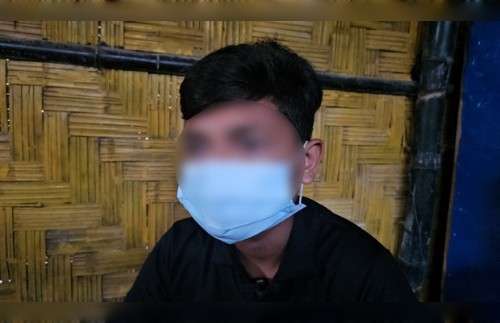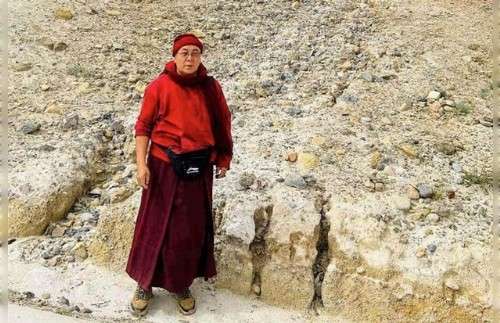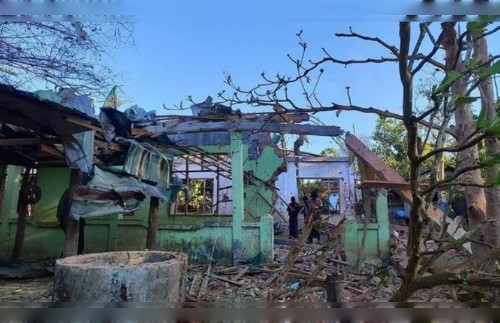
Nearly two dozen countries at the United Nations’ Human Rights Council in Geneva have urged China to end mass arbitrary detentions, as well as widespread surveillance and restrictions, on Uyghurs and other Muslim minorities in the Xinjiang Uyghur Autonomous Region (XUAR).
“We call on China to uphold its national laws and international obligations and to respect human rights and fundamental freedoms, including freedom of religion or belief, in Xinjiang and across China,” the representatives of 22 nations said in a joint statement issued earlier this week.
“We call also on China to refrain from the arbitrary detention and restrictions on freedom of movement of Uighurs, and other Muslim and minority communities in Xinjiang.”
In an unprecedented move, the countries also called on China to allow the U.N. high commissioner for human rights and other U.N. experts “meaningful access” to the XUAR to investigate the region’s internment camps, where authorities are believed to have detained up to 1.5 million Uyghurs and other Muslim minorities accused of harboring “strong religious views” and “politically incorrect” ideas since April 2017.
This week’s statement came after the vice governor of the XUAR, Erkin Tuniyaz, defended his government’s policy of incarcerating Uyghurs and other Muslim minorities in internment camps to the Rights Council, repeating for the U.N. Beijing’s claims that the camps are part of a vocational training program that is saving those influenced by religious extremism.
Reporting by RFA’s Uyghur Service and other media organizations, however, has shown that those in the camps are detained against their will and subjected to political indoctrination, routinely face rough treatment at the hands of their overseers, and endure poor diets and unhygienic conditions in the often overcrowded facilities.
Tuniyaz’s comments at the end of June came a day after U.N. human rights czar Michelle Bachelet opened the three-week rights council session by saying that she has continued to press China on issues related to the XUAR, including unfettered access to the region to investigate reports of persecution and suffering in the camps.
Ahead of the session, after China’s ambassador to the U.N. invited Bachelet to visit the XUAR to “see for herself” what he called “education training centers” in the region, the Office of the United Nations High Commissioner for Human Rights (OHCHR) told RFA’s Uyghur Service that she would not accept unless given access to the camps on her own terms.
Dolkun Isa, president of the Munich-based World Uyghur Congress exile group, called this week’s statement “a positive step in the right direction” and said it shows that “China has failed to deceive the international community with its lies by bringing Erkin Tuniyaz to whitewash its repressive policies … as a counter-terrorism measure.”
He expressed “deep appreciation” to the 22 nations that issued the statement and called for others to add their support, but also called it “shamefully regrettable” that no majority Muslim nation had joined in condemning China’s policies in the XUAR.
“I call on Muslim leaders not to stick their heads in the sand, but rather to … show courage and do their part in saving the lives of millions of Uyghur Muslims from Chinese concentration camps,” he said.
The statement was also welcomed by New York-based Human Rights Watch, with the group’s Geneva director John Fisher calling it “important not only for Xinjiang’s population, but for people around the world who depend on the U.N.’s leading rights body to hold even the most powerful countries to account.”
The previous joint statement on China at the Human Rights Council was led by the U.S. in March 2016 with 12 signatories, and Human Rights Watch said that nearly double the number of countries that joined the current effort reflects growing international concern over the situation in the XUAR.
Little action
But while an increasing number of governments have spoken out against the persecution of Uyghurs and other Muslim minorities in the XUAR, little concrete action has been taken to hold China accountable.
Last week, U.S. Representative Adam Schiff, who is also the chairman of the House Intelligence Committee, introduced the third piece of legislation to Congress that includes provisions addressing the situation in the XUAR as part of the Intelligence Authorization Act for Fiscal Year 2020.
The act includes a section that would require the Director of National Intelligence to submit to congressional intelligence committees a report on activity by China to repress ethnic Muslim minorities in the XUAR no later than 150 days after the legislation’s enactment.
The report must include an assessment of the number of individuals in internment camps, and the conditions in such camps, as well as whether detainees endure torture, forced renunciation of faith, or other mistreatment.
It also requires a description for the location of the camps, the methods used by China to “re-educate” detainees and who is responsible for those methods and any forced labor in the camps, as well as an assessment of the level of access China grants foreign persons observing the situation in the XUAR and the surveillance, detection and control methods used by China to target ethnic minorities.
In May, the U.S. Senate Foreign Relations Committee passed the Uyghur Human Rights Policy Act, which would appoint a special State Department coordinator on Xinjiang and require regular reports on the camps, the surveillance network and the security threats posed by the crackdown—if endorsed by the full U.S. Senate and ratified by the House of Representatives.
A complimentary bill—HR 649—was proposed in January by U.S. Representatives Chris Smith of New Jersey and Tom Suozzi of New York, who warned in a statement at the time that the XUAR has “become nothing short of a police state” and urged fellow lawmakers to “take a stand against this violation of human rights and show the Chinese government that this is unacceptable.”
Tough rhetoric ‘not enough’
Earlier this week, Congressional-Executive Commission on China (CECC) chair and cochair U.S. Representative Jim McGovern and Senator Marco Rubio—who co-authored the Uyghur Human Rights Policy Act—issued a statement calling on U.S. President Donald Trump’s administration to do more to address the situation in the XUAR.
“For the last year, we have urged the Administration, without success, to take actions to hold Chinese officials and businesses accountable for what may constitute crimes against humanity in the XUAR,” the statement said, adding that while “rhetoric has been tough … it’s not enough given the egregious scope of abuses.”
“We note that there has still been no response to the April 3, 2019 letter we sent, along with 41 of our Congressional colleagues, urging the Administration to urgently address what is one the world’s worst human rights situations.”
Reported by RFA’s Uyghur Service. Translated by Alim Seytoff. Written in English by Joshua Lipes.
Copyright © 1998-2016, RFA. Used with the permission of Radio Free Asia, 2025 M St. NW, Suite 300, Washington DC 20036. https://www.rfa.org
















